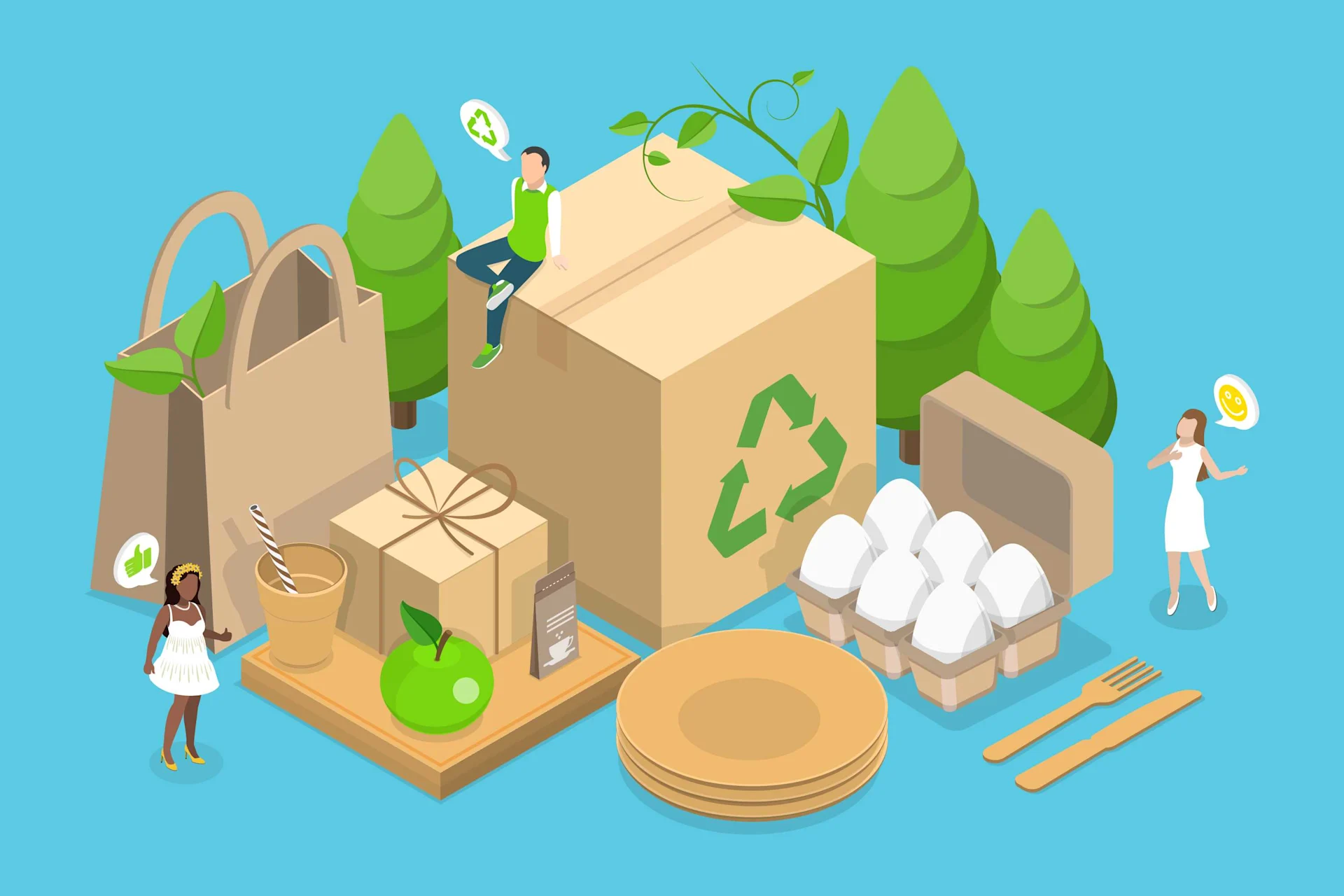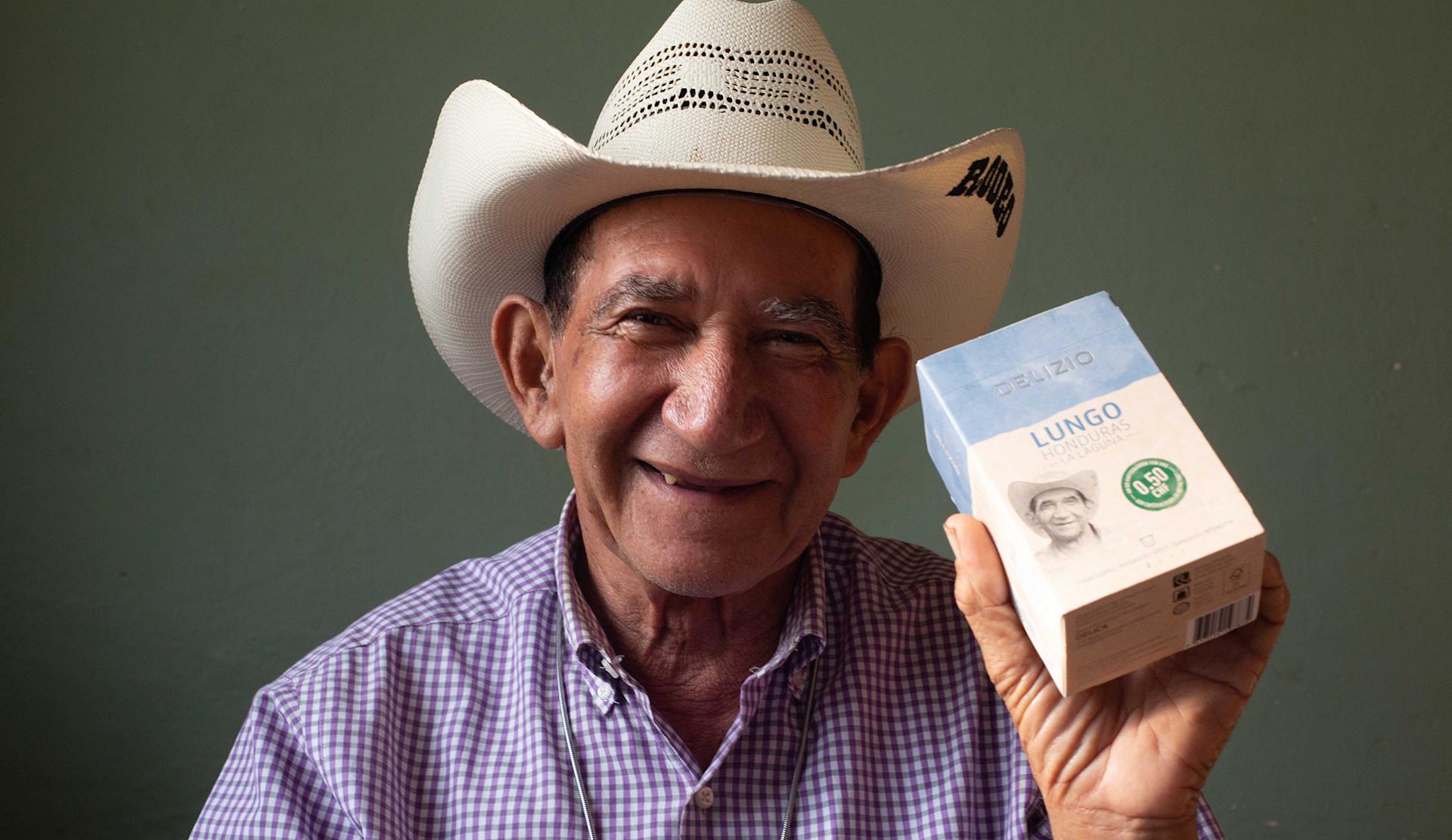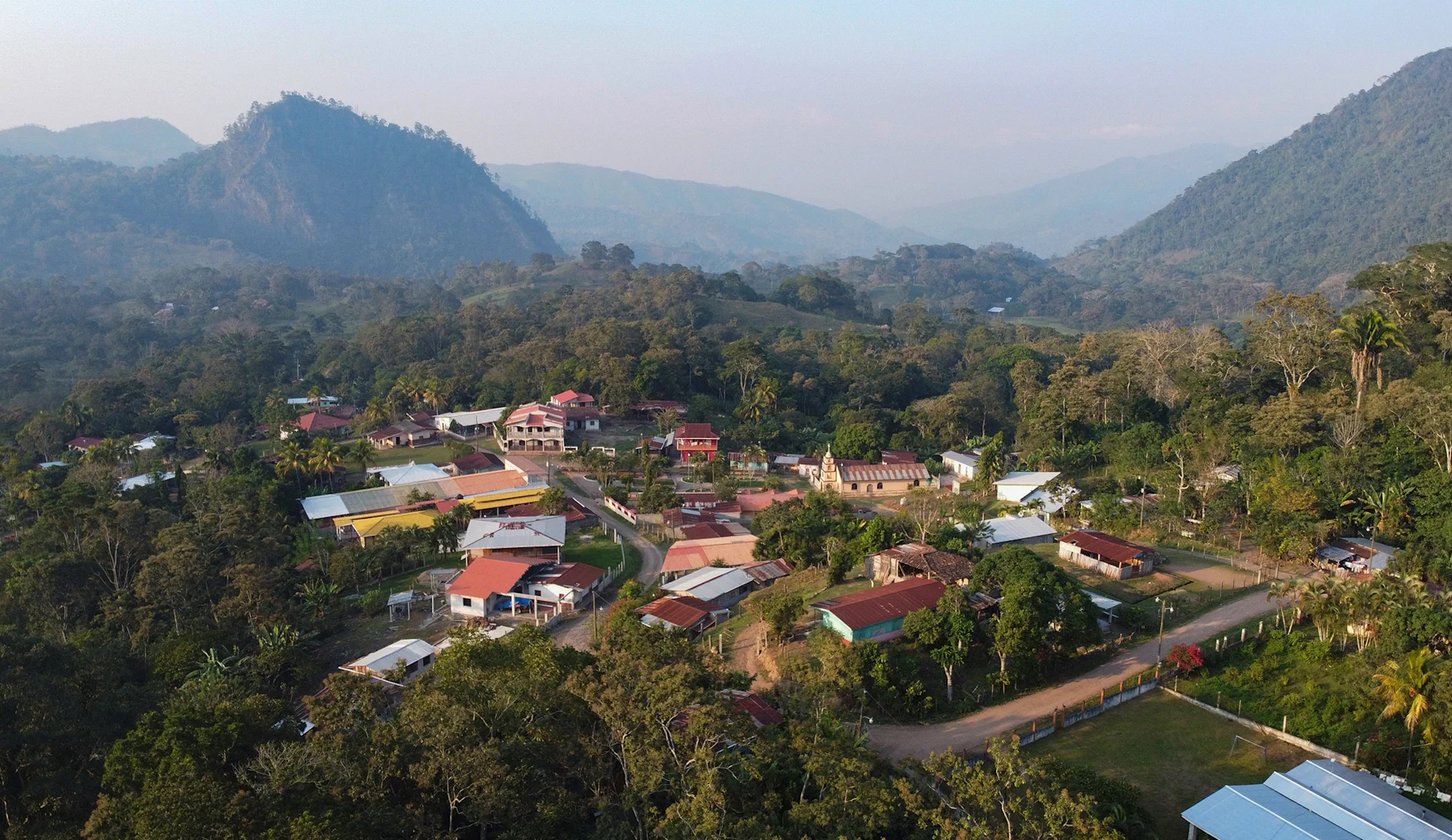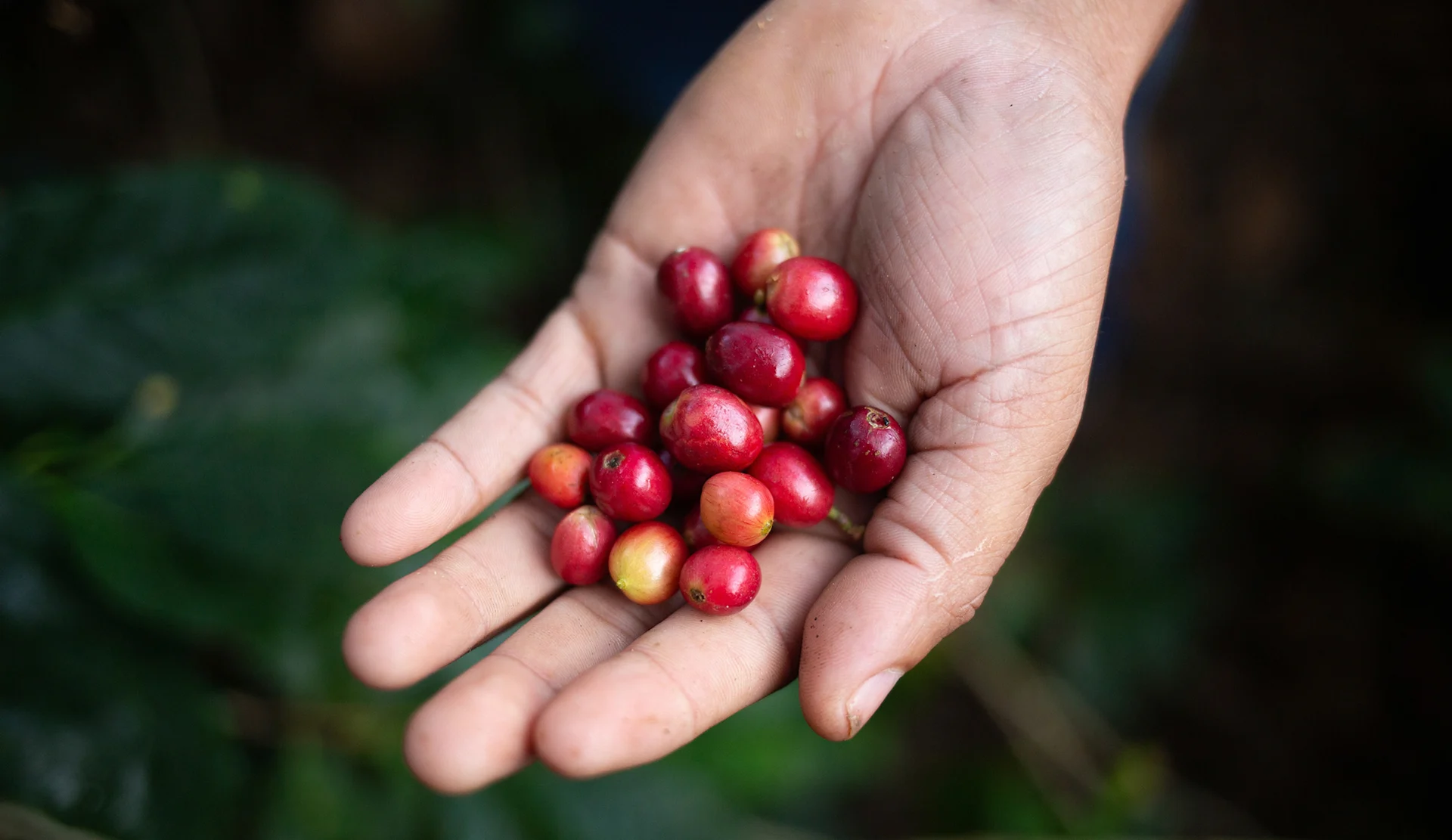
Sustainability
Responsible packaging
Migros is doing all it can to make packaging more sustainable and eco-friendly.
navigation

Fairtrade
Migros sources the beans for its Delizio and Café Royal coffee brands from a village in the north-west of Honduras. Over the years, a close working relationship has developed with the smallholders of La Laguna.
Honduras is regarded as one of the poorest countries in Central America, though it offers the ideal conditions for growing coffee. In addition to climate change, fluctuating prices on the global markets are the major challenge faced by the smallholders. Migros maintains a direct partnership with around 300 of them; for every pack of coffee sold, CHF 0.50 flows back into local social projects, and the farmers receive a better price for their coffee.

Migros magazine visited La Laguna to meet the coffee farmers. We went out into the fields with Hermes, a local farmer, enjoyed a wonderful cup of coffee with José and Daisy in their home, and spoke with Elvira about what life is like in the new Fairtrade cooperative for the region’s only female farmer.
Hondurans love coffee at least as much as the Swiss do. Anyone who visits a family at home – even if it is unannounced, as is the case here with José Wilfredo Madrid and Daisy Esperanza Vallecillos – will almost always be offered a cup of coffee. “We always add a little home-grown allspice to the coffee beans. It makes for a very aromatic cup.”
Elvira Yamileth Rivera Madrid (40) is currently the only female coffee farmer with a Fairtrade certificate in the region. “It doesn’t put me at a disadvantage to be the only woman here. I get on well with all the men in the cooperative.” Instead, her biggest problem is poor harvests when there is insufficient rainfall. To compensate for these losses, she also grows cardamom.
Hermes Rolando Barahona Rivera (42) is among the region’s poorest farmers. He works a small piece of land. His collaboration with Migros and the Fairtrade certification give him financial security. “I want to use the additional income to build my own house. At the moment, my wife, our two-year-old daughter and I are living with my mother. It’s pretty crowded.” For the future, he hopes that his daughter can get a good school and university education.
Alfredo Rivera Diaz (48), head of the cooperative, has a degree in Medicine. His brother would have taken on the job at the cooperative, but he was killed during a kidnapping. This is a familiar story for many families in Honduras. “To begin with, I didn’t know much about coffee, and first had to acquire the knowledge.” Now he coordinates coffee cultivation in the region with great skill and a sympathetic ear for the farmers’ concerns.
Jesus Antonio Rápalo Murillo is 80 years old and has been a coffee farmer for over half a century. He is also the face of the Honduras coffee at Migros. “During all my years as a coffee farmer, the cost of fertiliser and the wages for my pickers have increased continuously. But the price of coffee hasn’t. This makes it increasingly difficult for farmers to earn enough money.” Fairtrade makes it possible for him and his colleagues to continue making a living from coffee cultivation.

In order to switch to Fairtrade Max Havelaar, the farmers must invest. They first have to meet safety, environmental protection and social requirements, and keep clean records regarding cultivation and harvests. Migros provides them with financial support to help them switch with CHF 0.50 from every pack sold.
Fairtrade Max Havelaar guarantees farmers a fair minimum price for their coffee. This is important, as the price of coffee fluctuates heavily on the global markets. In addition, the cooperative is paid a Fairtrade premium. The farmers decide democratically which projects to invest the funds in, as the establishment of such organisations is one of the conditions for retaining the Fairtrade certification. By early 2021, the majority of local farmers will be members of the cooperative.
Discover exciting stories about all aspects of Migros, our commitment and the people behind it. We also provide practical advice for everyday life.